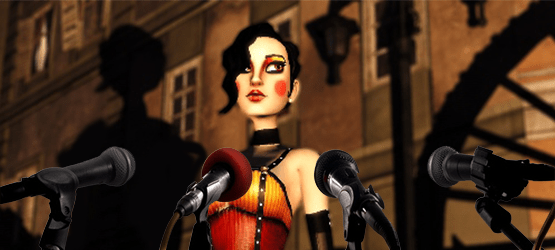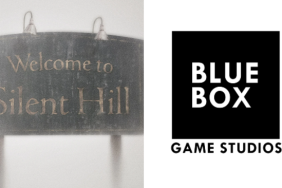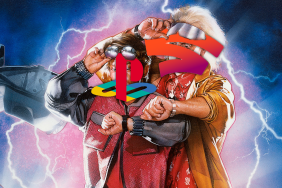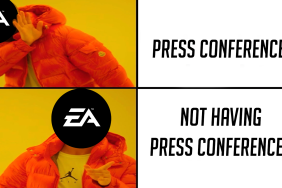With the growing indie scene, the Daily Reaction crew of Sebastian Moss and Dan Oravasaari got in touch with Contrast developer and founder of Compulsion Games, Guillaume Provost, for an extra indie AskDR.
I have been seeing a lot of changes happening in journalism recently, there are a lot of major labels that are shutting down or consolidating and I also sense that there has been a lot of competition coming from the public – YouTube channels, smaller sites etc…
So, I am curious to see how you see coverage of games like [Contrast] that are a little bit different, maybe a little bit more niche, maybe a little bit more innovative. How are they going to get covered in the future? Will it be the big publications? Will it be the smaller blogs? YouTube channels? And how are you guys dealing with that fragmentation of the market?
Dan: Let me start off by saying thank you to Guillaume for the excellent question, as there are so many levels to the way coverage works within the games industry that it can become quite complicated. As we have stated before in our previous Daily Reactions and AskDRs, a great deal of the reasoning behind why some games will automatically get more coverage than others, is simply a matter of traffic and install base. Sites like PlayStation LifeStyle, IGN, Polygon and others rely on Google for a great deal of their hits, which in turns creates revenue to keep the publication alive.
What this means is that some publications will use avenues to bring in traffic, whether it is only regurgitating news or simply using the latest flamebait headlines to top aggregate sites like N4G, they will not bother giving much attention to products that aren’t already known and popular. This is one of the major issues with the smaller publications, as they do not have the install base to generally support themselves, let alone a staff, forcing them to throw credibility out of the window to earn a few extra dollars.
This of course doesn’t mean that all independent or smaller outlets, whether they are blogs or YouTube channels, are all crap, as a great deal are able to give a genuine opinion and are at times more capable than bigger publications. The real issue is determining which of those outlets are simply looking to drive traffic by only following the trends and those that are looking to inform the fans of new content.
What all of this means for independent titles is that the best way to get the word out about your game is to, more often than not, know who you are talking to. The industry is shifting towards a more celebrity formatted medium, where we are having names become the faces to tell us what is good and what is bad. This doesn’t mean that all fans are falling for this new style of marketing, but it is a transition that is becoming more prevalent than ever before.
So, what sites like ours are already having to do is adapt to being more personable with how we interact with the audience, as there is a growing need to relate to your presenter. For developers, what this means is that most of us are simply getting flooded with attention and it becomes all to easy to just move onto the next big thing. Sending out press releases is a great way to hit the boxes for a one time wave of ‘here’s more news,’ but you will not likely generate much conversation and people will just move on as well. The most influential way of having coverage for a game is to do all of the standard mass marketing techniques, but to also contact people directly that you know will be genuinely interested in the product, and also have the means to communicate with their fans – Podcasts, Youtube shows, etc…
As we have been seeing, both sites that are big and small are paying attention to the indie scene, as that has been the source of some of the greatest experiences we have had this generation. Developers won’t be able to simply choose a single size of outlet that they need to be in contact with, but they do need to realize that certain publications move on quicker than others. Some publications are more able to get major exclusives from big publishers, so competing for location on the site will be more difficult, or impossible to get a lasting feature depending on what launches around it. The only real thing that can be done, is to make sure to weigh in on whether or not exclusive content is worth it for some publications, as it also creates a ripple of being now ‘old news’ to other publications that don’t regurgitate content from other sites.
Seb: This is a fantastic question, and I think it’ll be therapeutic for me to answer it as the constant changes in games journalism have plagued my waking thoughts. There is indeed a huge level of competition among the big players, and even greater competition from the newcomers, the blogs, the video personalities.
The barrier to entry in games journalism is virtually zero. If you are reading this, you have an internet-enabled device, so you can start posting stuff on a blog, or start a YouTube channel. And you can bet that when the next gen finally launches, there will be a surge in newcomers like never before, and it’ll grow faster with the video sharing capabilities of the PS4 and Xbox One.
As someone who has a less than stable job in a turbulent industry, I’m admittedly nervous about what the future holds, but I’m also excited. Games journalism is still a baby, and I can’t wait to see what its next stage of evolution will bring, and hopefully the increased competition will lead to better content from everyone.
Sometimes, however, I feel old, staring blearily at my laptop screen and trying to work out what Vine’s for. Video content is an awesome medium, but often it confuses me – there are people who literally read PSLS articles on YouTube to a camera… that loses me. But then I see fantastic discussions, the personalities, the humor and the innovation that can be had through video and I understand what it’s for.
But just as Twitter hasn’t killed off mainstream news, YouTube videos likely won’t kill off the ‘traditional’ games press, who still break most of the news, and help fact check and provide balance to much of what is said on the internet. My fear, unfortunately, is that instead of simply ensuring they break and fact check the news through good journalism, we will see an increasing tendency towards the exclusives that Dan mentioned.
Now getting back to Contrast – who do I think will cover it? Echoing Dan, there is the whole Google thing, the fact that millions of people are searching for Assassin’s Creed, while indie games generally have far less googlers. So anywhere that pays writers per hit probably won’t cover it much, if at all. Anywhere that is unduly traffic focused won’t prioritize it. Anywhere that is one of those sites undergoing staff losses will probably struggle to focus on tons of indie content, when they can get more revenue elsewhere. I’ll be frank – the average indie article gets abysmal traffic, while a basic AAA post will always do well – and that impacts the coverage of some outlets.
Indie developers will also never be able to compete with a publisher’s extensive press contact database, constant high budget trailer releases, special preview events in swanky locations across the world and even flights for the press.
But I don’t want to be unduly mean to games journalism as a whole. A lot of sites are increasing their focus on indie content, without traffic being the goal. As I talked about in our James Marsden AskDR, a lot of us genuinely care about the industry and want to make it better by helping give coverage to small developers and new game types. Plus, as we touched upon in our Jonathan Blow AskDR, journalists can get bored of the rinse-repeat of AAA games, so it’s far more enjoyable to cover something a tad different.
So what can developers do? Take advantage of what you are – and indie. There’s no PR machine mincing up your words and interactions with the press, no specific corporate mantra you have to stick to, no restrictions on who you talk to and what you talk about. Reach out to the press you like on a personal level, and simply chat with them. Do interviews, do guest posts, appear on their podcast or YouTube show and you’ll be known by tons of readers/listeners. And the great thing is, once you’ve talked to enough outlets, others will realize they’re lacking in content and will reach out to you.
It’s not easy trying to balance the requirements of actually being a games developer, and doing all that PR-like work, but it is sadly vital if a small dev wants to be known at all.
Thankfully, speaking specifically for Contrast, it’s going to be the PS4’s first free PS+ title, so that means it’ll get a lot more attention from the start. Plus, if it’s as good as our first impressions suggest, then the press will be even more likely to talk about it. As for YouTube and smaller blogs, it certainly will be interesting to see how the internet community reacts to the game’s strong adult themes (abuse, sexual assault), and what gripping stories playing the game will lead to.
What has been the best way for you to hear about indie titles? How can publications let you know more about smaller titles? What will be the future of games journalism? Let us know in the comments below, email us at DailyReaction@PlayStationLifeStyle.net or tweet us links to your channel at Seb and Dan.








